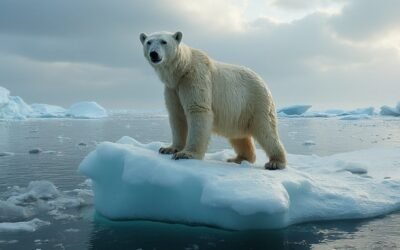Preserving beluga whales demands an all-encompassing strategy addressing pollution, noise disruption, ship strikes, climate change, and sustainable hunting. These whales are essential as top predators, indicators of environmental changes, and hold cultural significance. Effective conservation involves protecting their habitat from pollutants and human activities, monitoring populations through aerial surveys and acoustic tracking, and engaging local communities. Sustainable tourism practices, such as minimizing boat traffic and educating visitors, also play a pivotal role. Continuous efforts in these areas not only safeguard belugas but also enhance overall ocean health. Further exploration will provide more detailed conservation methods and initiatives.
Main Points
- Reduce pollution to improve the water quality and food sources for beluga whales.
- Implement noise reduction measures to protect beluga communication and navigation.
- Manage subsistence hunting sustainably to maintain beluga populations.
- Support population monitoring efforts for informed conservation strategies.
- Engage local communities and promote public awareness to foster active conservation efforts.
Threats to Beluga Whales
Beluga whales face numerous threats, including pollution, noise disruption, subsistence hunting, ship strikes, and climate change. Pollution impacts beluga whales by degrading water quality and contaminating their food sources, which can lead to health issues and reduced reproductive success. Noise pollution from human activities, such as shipping and industrial operations, interferes with the whales' ability to communicate and navigate, essential behaviors for their survival.
Ship strikes represent a significant hazard, causing injuries and fatalities among the beluga population. These incidents are increasingly common as shipping traffic intensifies in Arctic regions. Indigenous communities engage in subsistence hunting of beluga whales, a practice that has cultural and nutritional importance but must be managed sustainably to prevent overexploitation.
Climate change poses a profound threat to beluga whales by altering the Arctic sea ice, an essential component of their habitat. The reduction in sea ice affects the availability of prey and exposes belugas to increased predation and human activities. Collectively, these threats underscore the need for thorough conservation strategies to guarantee the long-term survival of this important marine wildlife species amidst growing environmental challenges.
Importance of Beluga Whales
Recognized for their vocal prowess, these 'canaries of the sea' play an essential role in marine communication and social structures. Beluga whales utilize a complex array of sounds for communication, facilitating intricate social interactions within their pods. Their vocalizations help maintain group cohesion and are essential for finding and hunting in the often murky waters of the Arctic and sub-Arctic regions.
Beluga whales are considered pivotal indicator species within marine ecosystems. Their health reflects the overall condition of their environment, signaling changes due to pollution or climate shifts. As top predators, belugas regulate prey populations, ensuring ecological balance. Their presence underscores the intricate food webs that define marine ecosystems.
The cultural significance of beluga whales cannot be overstated. Indigenous communities have historically relied on belugas for sustenance and spiritual practices, embedding these creatures into their cultural heritage. Moreover, studying beluga whales offers invaluable insights into marine science, enhancing our understanding of ocean health and biodiversity.
| Aspect | Description |
|---|---|
| Communication | Complex vocalizations for social interactions and orientation |
| Indicator Species | Reflect changes in environmental conditions |
| Top Predators | Regulate prey populations and maintain ecosystem balance |
| Cultural Significance | Integral to indigenous communities' traditions and beliefs |
| Marine Science | Provide insights into ocean health and biodiversity |
Beluga whales are indispensable to both their natural habitats and the human cultures that revere them.
Habitat Protection
Ensuring the survival of beluga whales necessitates a focus on protecting their natural habitats, which are increasingly threatened by human activities and environmental changes. Habitat protection is a cornerstone of conservation efforts aimed at preserving these majestic creatures. Beluga whales mainly inhabit Arctic and sub-Arctic waters, favoring shallow coastal regions, estuaries, and river deltas during the summer months. However, their habitats are under constant threat due to various factors.
- Pollution: Contaminants from industrial and agricultural runoff accumulate in the beluga prey, posing significant health risks to the whales.
- Shipping activities: The increase in global maritime traffic introduces underwater noise and physical disturbances, disrupting the natural behavior and communication of beluga whales.
- Commercial fishing: Overfishing depletes the prey available to belugas and can lead to unintended bycatch, further endangering their populations.
- Human disturbance: Coastal development and recreational activities in beluga habitats introduce additional stressors, making these environments less suitable for their survival.
Effective habitat protection involves stringent regulations to manage human activities, reduce pollution, and mitigate underwater noise. By prioritizing these conservation efforts, we can work towards the preservation of beluga whale populations, ensuring their continued existence for future generations.
Population Monitoring
Population monitoring of beluga whales is essential for tracking their abundance, distribution, and health indicators. Researchers employ various methods, including aerial surveys, photo identification, genetic analysis, and acoustic monitoring, to gather thorough data. These monitoring efforts provide critical insights into the seasonal movements and overall well-being of beluga populations, informing conservation strategies and recovery initiatives.
Tracking Beluga Populations
Observing beluga whale populations in Alaska's Cook Inlet is crucial for understanding their dynamics and informing conservation strategies. The Cook Inlet beluga population has experienced a significant decline of nearly 80% between 1979 and 2018. Recent data indicate a stabilization and possible increase, with an abundance estimate of 331 animals. Accurate tracking of this population is essential for evaluating the effectiveness of conservation efforts and ensuring the species' long-term survival.
Researchers utilize various methods to monitor these whales, including aerial surveys, acoustic monitoring, and satellite tagging. Tracking these belugas helps scientists gather critical information about their habitat use and population size. For example, the quieter Susitna River delta is recognized as an important feeding area, highlighting the need to mitigate human-caused noise that adversely impacts these whales.
The following points underscore the urgency of ongoing monitoring:
- Dramatic population decline: From 1979 to 2018, the Cook Inlet beluga population decreased by nearly 80%.
- Recent stabilization: Current estimates suggest a population size of 331, indicating potential stabilization.
- Critical feeding areas: The Susitna River delta's significance underscores the need for noise reduction.
- Conservation necessity: Continuous tracking is essential for effective conservation efforts and ensuring the species' future.
Monitoring Seasonal Movements
Understanding the seasonal movements of beluga whales provides essential insights into their habitat use and distribution patterns, complementing efforts to track overall population dynamics. Tracking these movements is vital for identifying critical areas where belugas feed, breed, and raise their young. By monitoring seasonal shifts in their ranges, researchers can gather valuable information about the migratory behaviors of beluga whale populations.
These insights are fundamental for evaluating the health and status of beluga populations over time. Effective tracking of beluga seasonal movements allows for the identification of trends and changes in habitat use, which may be influenced by environmental factors or human activities. Understanding these patterns is important for the development and implementation of targeted conservation strategies aimed at protecting these marine mammals.
Community Involvement
Community involvement plays a vital role in the conservation of beluga whales. Effective conservation efforts require active participation from the public, which can be achieved through various means. One important aspect of community involvement is reporting sightings of beluga whales, strandings, and harassment incidents to NOAA Fisheries. This valuable data helps scientists monitor and protect the population.
Additionally, promoting beluga-friendly boat practices in areas like Cook Inlet is essential. By encouraging boaters to operate in ways that minimize disturbances, we can protect these sensitive marine mammals from unnecessary stress and harm. Public participation in outreach events and citizen science programs also contributes significantly to beluga conservation efforts. These activities foster a sense of responsibility and connection among community members.
Collaborating with local communities is vital for the success of any conservation initiative. Local knowledge and engagement can lead to more effective protection of beluga habitats. Education and awareness are key components of this collaboration, ensuring that the public understands the importance of preserving beluga whales.
To evoke emotion and highlight the importance of community involvement, consider these points:
- Reporting sightings saves lives.
- Beluga-friendly boating practices protect vulnerable whales.
- Citizen science programs empower individuals.
- Education fosters a future of conservation.
Sustainable Tourism Practices
Implementing sustainable tourism practices is crucial for the preservation of beluga whale populations and their habitats. Marine environments where belugas reside are particularly sensitive to human activities, making it essential to adopt responsible and eco-friendly tourism methods. A notable aspect of sustainable tourism is minimizing boat traffic in critical habitats to reduce disturbances that can stress the whales and disrupt their natural behaviors.
Tour operators play a pivotal role in this effort by adhering to guidelines that ensure responsible interactions with belugas during viewing activities. Educating visitors about the importance of beluga conservation and the human impact on their environments is another key component. This education helps tourists understand the delicate balance required to maintain healthy marine ecosystems.
Implementing measures to limit the number of boats and tourists in beluga areas further supports conservation efforts. These measures can alleviate stress on the whales and help preserve their habitats. Supporting local initiatives and organizations dedicated to beluga conservation through eco-friendly tourism practices can significantly contribute to long-term sustainability. By integrating these strategies, we can foster a tourism model that benefits both the belugas and the communities that rely on marine tourism.
How Do Current Conservation Strategies Work to Preserve Beluga Whales?
Beluga whale conservation strategies focus on protecting their natural habitats, reducing industrial pollution, and minimizing human interference. By enforcing stricter fishing regulations and establishing protected areas, these efforts seek to maintain the population’s stability while promoting greater awareness of the threats belugas face from climate change and habitat destruction.
Conclusion
The conservation of beluga whales necessitates addressing various threats, safeguarding habitats, and conducting rigorous population monitoring. Engaging communities and promoting sustainable tourism are essential for ensuring long-term protection. This multifaceted approach not only preserves the species but also maintains the ecological balance within their habitats. Effective conservation strategies must be implemented consistently to secure the future of beluga whales, emphasizing collaborative efforts and ongoing commitment to their preservation.


